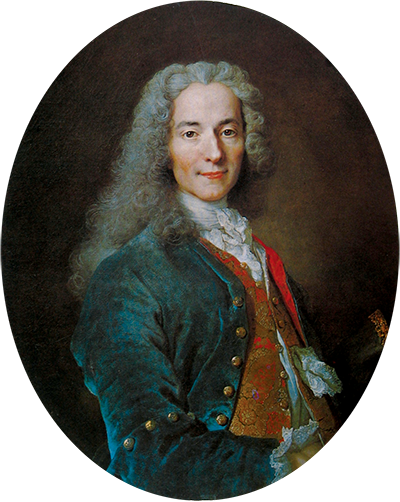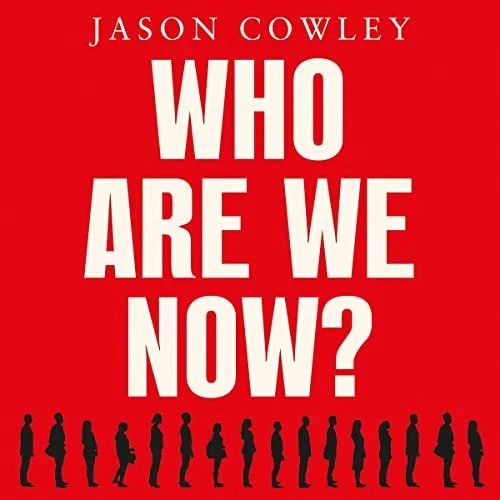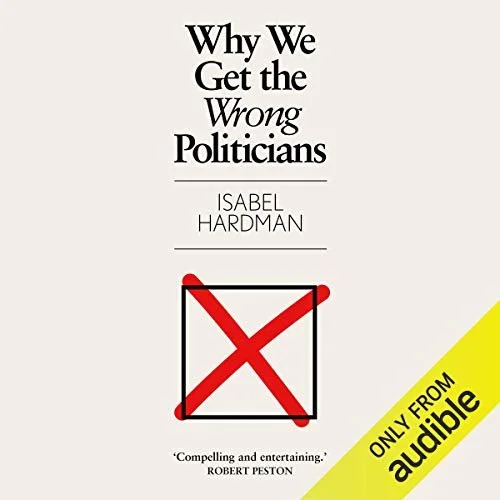Voltaire’s Candide and what it shows about Terra Ignota
What is the best of all possible worlds? Would we know we’re in the best of all possible worlds if we were in it? Looking around at the world, with a war in Ukraine, authoritarian strongmen on the march everywhere and a likely environmental disaster in our near future, it’s hard to argue that we are in the best of all possible worlds, but that’s exactly what German philosopher Gottfried Wilhelm Leibniz argued. Remember him; we’ll come back to him.
We might or not be in the best of all possible worlds, but what would the best of all possible futures be like? Star Wars? Well, that would certainly be fun? Brave New World? Only if you’re an Alpha. Dune? Definitely not.
I would argue that one of the best of all possible futures would be the one depicted in Ada Palmer’s Terra Ignota novels. This series of four books is set in a future that is very different to ours. It’s certainly not perfect, but it’s a less dangerous and divided world than ours.
Ambiguous Utopia
The novels have been described as an “ambiguous utopia” i.e. not a utopia like Iain M. Banks Culture novels - where no one has to work and there are no laws, this society would not work without technology such as Strong AI or FTL that might not be possible - or a dystopia like George Orwell’s 1984 - where humanity suffers under the oppression of a totalitarian government.
In an ambiguous utopia, some things are better and some are worse. In many ways the world of Terra Ignota is much better than our world. In the 25th century that the novels are set in, humanity doesn’t have war, poverty or conflict between nation states. However, there is still corruption, inequality, powerful fallible people who make decisions about the lives of others and deep-seated human conflict hasn’t been eliminated.
A world without suffering
The people who live in the Universal Free Alliance that runs the world are certainly proud of their society’s accomplishments, from protecting nature to colonies on Mars, but do they think they live in the best of all possible worlds?
At several points during the novels, the argument is made that despite the material comfort and peace of the Universal Free Alliance there is a huge problem with their society. Without suffering, which has been all but eliminated, the pressure necessary to drive technological development and the fulfilment of human potential has been removed. Why reach for the stars when home is so nice?
One character, a genius writer, inventor and celebrated thinker called Apollo Mojave, asks the young narrator, Mycroft Canner, if they would destroy this world to save a better one? This implies this world is not the best of all possible worlds.
War might be better than peace
Apollo argues that the world is too comfortable, which will prevent humanity from wanting to live in uncomfortable bases on Mars so that we can reach the next step in our outward journey from caves to the stars. In the novels, this debate is the conflict between the Gordian hive and the Utopian hive known as the Trunk War. The best of all possible worlds would reduce human suffering, but at the same time, the best of all possible worlds wouldn’t coddle humanity and would allow people to reach their full potential.
Maybe this more comfortable, safe and secure home isn’t the best of all possible worlds if it stifles invention and humanity’s quest for knowledge. Apollo’s question implies that if this world is not the best of all possible worlds and a better one is possible, it might be necessary to destroy this world to make this better one?
This leads to Apollo, and the members of the Mardi bash, planning to drive the world into a war to make this world less comfortable, and thus making sure that the urge for humanity to expand outwards is preserved. This is their view of what the best of all possible worlds would be.
Conflicts old and new
Across the timeline of the four novels, partly due to the Mardi bash’s plan and due to factors outside their understanding, the world falls into a bloody war that kills millions. Their better political system, with so much freedom and opportunity, doesn’t prevent conflicts arising across old long-buried divisions - such as conflict between nation-states, which they thought they had resigned to the past - and new divisions- such as conflicts between hives of the Universal Free Alliance or over the set-set issue.
A hopeful future
Despite the war, the bloodshed and the hatred, after reading Terra Ignota I was left with the impression that this is a much better world than ours. The message of Terra Ignota is that there is hope for the future. It’s fundamentally anti-dystopian, if it is not explicitly utopian. The books show that in the future humanity can overcome hatred, nationalism, the destruction of the environment and war to build a better world.
The novels also tell a story about how we see history, partly inspired by the Enlightenment view that history was a natural state of progress towards a better and more rational society. The Universal Free Alliance is influenced heavily by Enlightenment ideas. The founders of this best of all possible futures looked not to their immediate past (the violent 20th and 21st centuries) but to the “enlightened” 18th century as a model to build their rational governments of the future.
The individual who has had the biggest influence on the Universal Free Alliance is Voltaire, because of his advocacy of freedom of speech and freedom of religion, his support of civil liberties, his anti-slavery views and his pluralism. Voltaire wrote many things in his life, letters, essays, pamphlets, satires, plays and a novel called Candide, which has similar philosophical debates to the Terra Ignota novels.
Voltaire’s Candide
Voltaire wrote Candide as an argument against Leibniz’s philosophical optimism - remember him? - which addressed the issue of where does evil come from if the universe is overseen by an all-good creator, i.e. God, in the Christian sense, with a capital “G”. Leibniz’s argument that we are in the best of all possible worlds is the means to answer the “problem of evil”, a.k.a. the question of why there is evil in a world created by God, who is perfect.
In the novel, the eponymous protagonist, a young man named Candide, has a series of adventures that teach him lessons about the world. The character of his teacher, Dr Pangloss, expresses Leibniz’s philosophical optimism and tells Candide that he lives in the best of all possible worlds.
Lots of bad things happen to Pangloss - including him getting syphilis, his friends dying and his nose falling off - and Voltaire uses this to argue that there is a lot to love about life, but we’re not in the best of all possible worlds. This links to the view that Terra Ignota is an ambiguous utopia, i.e. it is not the best of all possible worlds but one that has a lot going for it.
An optimistic vision of the future
Even the much better world of the Universal Free Alliance is not the best of all possible worlds that Leibniz thinks we live in. It has less war, suffering, death and hatred than our world, but it’s not the best of all possible worlds.
Even I, an ardent atheist, think that banning the discussion of religion is an unfair restriction of individual freedom, and in the Universal Free Alliance discussion of religion is banned by their highest law. The hatred that some people in Terra Ignota, such as Lorelei “Cookie” Cook, express about set-sets is a naked prejudice that is socially acceptable, which to me means this can’t be the best of all possible worlds.
Don’t just tend your garden
Candide ends with the hero returning to his home to work in his garden and not think about the difficult philosophical questions that the novel raises. Voltaire seems to say that we would be happier if we just tended our own gardens and didn’t worry about the big questions of the world, or struggle to make the world a better place. I disagree with this outlook. It’s a way to shrug off everyone’s responsibility to work to make this a better world.
Terra Ignota may not be the best of all possible worlds, but it is certainly a better world than this one and provides us with an optimistic vision of the future where many problems of today have been addressed. I find this encouraging and it tells me that we don’t have to be satisfied with the inadequacies of today’s world. Terra Ignota inspires us to do more than till our own gardens as, Candide does, but to struggle to make this a better world.
Voltaire image taken from Wikipedia and is in the public domain.




